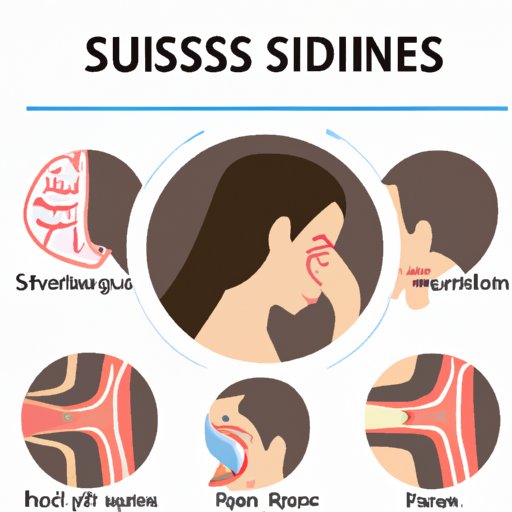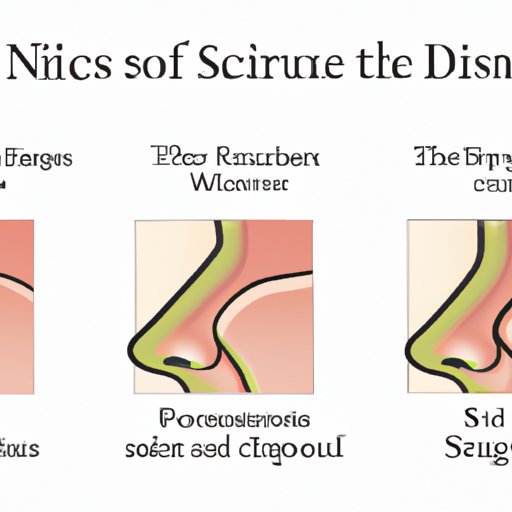
I. Introduction
Sinus disease, also known as sinusitis, is a condition that occurs when the sinuses become inflamed or infected, leading to various uncomfortable symptoms. It is essential to learn about sinus disease to understand its causes, symptoms, and treatment options effectively.
II. Different types of sinus diseases and their symptoms
Sinusitis is categorized into four types: acute sinusitis, chronic sinusitis, allergic rhinitis (hay fever), and nasal polyps. Each type has its unique symptoms.
Acute sinusitis is a short-term inflammation of the sinuses caused by viruses or bacteria. Its symptoms include persistent cough, nasal discharge, facial pain, and a fever.
Chronic sinusitis lasts for more than 12 weeks, with symptoms such as nasal congestion, tooth pain, a discharge of thick yellow or green mucus, and a reduced sense of smell or taste.
Allergic rhinitis, also known as hay fever, is caused by allergens such as pollen, dander, and dust. It causes symptoms such as a runny nose, itchy nose and eyes, and sneezing.
Nasal polyps are soft, noncancerous growths that develop in the lining of the nose and sinuses. They cause symptoms such as nasal congestion, postnasal drip, runny nose, and reduced sense of taste and smell.

III. Causes of sinus disease and how to prevent it
The causes of sinus disease vary, including environmental triggers such as pollen, dust, and mold, cold and flu viruses, smoking, and increased exposure to irritants. To prevent sinus disease, it’s essential to avoid these triggers. You can also drink plenty of fluids, maintain proper hygiene, quit smoking if you smoke, and use air purifiers in your home.
IV. The impact of sinus disease on daily life and productivity
Sinus disease can significantly impact your daily life, reducing productivity and causing fatigue, headaches, difficulty breathing, dizziness, and a reduced sense of smell and taste. These symptoms can also affect your mood and overall well-being.
V. How to diagnose and treat sinus disease
To diagnose sinus disease, a doctor will perform a physical examination and may recommend imaging studies such as x-rays or CT scans. Treatment options depend on the type and severity of sinus disease and may include antibiotics, nasal sprays, or surgery.
VI. Natural remedies for sinus disease
Several natural remedies can help relieve symptoms of sinus disease, including steam therapy, saline nasal irrigation, drinking plenty of fluids, eating spicy foods, and using essential oils.
VII. The relationship between allergies and sinus disease
There is a clear link between allergies and sinus disease, with common allergy triggers such as pollen, dust, and pet dander leading to sinus problems. Treatments for both allergies and sinus disease may include medication, allergy shots, or immunotherapy.
VIII. Chronic sinusitis: Causes, symptoms, and treatment options
Chronic sinusitis is a long-term inflammation of the sinuses, commonly caused by allergies, nasal polyps, and dental infections. Its symptoms include nasal congestion, a reduced sense of smell and taste, and facial pain and pressure.
Chronic sinusitis treatment options include saline nasal irrigation, corticosteroids, antibiotics, and surgery. If you experience severe or prolonged symptoms of chronic sinusitis, it’s essential to consult with a doctor.
IX. Conclusion
Understanding sinus disease is crucial to prevent, diagnose and treat the condition effectively. If you are experiencing severe or prolonged symptoms of sinus disease, it’s vital to seek medical attention to receive proper diagnosis and treatment.




